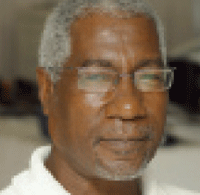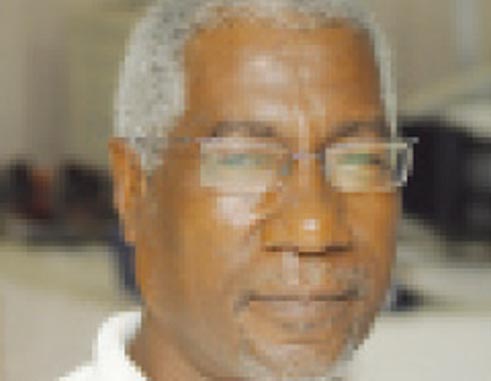
THE day before it happened, Laurent Jn Pierre called my talk show on WVENT to comment, in part, on the fact that the Parliament would finally discuss the 190 proposals for constitutional reform, yet there was no mention of using the Kweyol language to spread the word. That being familiar territory between us, we shared views around the fact that while Kweyol has been declared an equal Saint Lucian ‘national language’, we’d not seen or heard anyone say any-thing about enshrining a place for Kweyol in the constitution.
Call it sentimental linguistic romanticism if you will, but those of us who laboured to bring Kweyol where it is here today – from the Governor General to everyone else associated with its elevation to current national status and standard – do feel that every opportunity should be taken, 36 years after Independence, to give Kweyol the deserving place it has in all we do.
I made the point that in small and micro mono-lingual countries where constitutional reform has been approached of late, the proposed recommendations are usually printed, published and circulated among the people to ensure they reach all the people possible in every home and community. But in our bilingual society, I am yet to see or hear plans for the 190 proposals to be presented in Kweyol.
Of course, a Kweyol version of the recommendations will be a much more difficult undertaking than the English compilation. But not only is it possible, it should be proposed – in one form or another — to better explain the reform proposals to more of “the people”.
In a country where ‘we the people’ have evidently lost the national appetite for reading, it can be asked that if people don’t read English, what’ll make them read Kweyol? The answer is in the packaging and delivery, making it attractive enough for people to want to get involved in the discussion.
Saint Lucia’s big, broad, massive and large Kweyol community is in the discussion mode. A statement last week by a little-known women’s advocacy group blaming rape squarely on men’s disrespect for women and the society’s insistence on blaming women for dressing too “inappropriately” unleashed a four-hour-long debate on WVENT’s Kweyol morning programme hosted by ‘Coakes’. Ditto the Soufriere shooting of a man everyone says did nothing to deserve dying the way he did: on Tuesday night’s “Head-to-Head” show that I co-host with Denys Springer on Calabash TV, a mentally challenged lady called to explain why armed and/or uniformed police should always stay away from the mentally challenged.
The Constitutional Review Commission’s proposals ought to be communicated to those who live the Kweyol language daily on their tongues. Politicians, Civil Society and those versed in constitutionalism are already doing their part – and well enough, so far. But Ma Joe and Mr Blo, more than anyone else, need to know where they can go to get the message.
For some unexplained reason, it would appear the Commission never intended or simply rejected proposals to print and publish the Report and/or recommendations in Kweyol. After all, somewhere in the report is a claim (or argument) that it was unnecessary to publish it in the native language of the people, in the language that since 1997 has been ‘declared’ our equally important native national tongue alongside English.
It would appear the majority of the Commissioners either did/do not see the added value (to the efforts to promote and maintain the Kweyol heritage) that would have come out of the exercise. They didn’t see it spurring a rebirth of Kweyol classes in communities and a wider spread of its teaching and learning, from life-serving inmates at Bordelais to classrooms by day and night for student and adult Kweyol literacy classes. No, they didn’t see the value of encouraging even the English readers to learn to read, write and speak or better speak Kweyol.
Yes, we have numerous Kweyol Dictionaries, Jounen Kweyol has metamorphosed from a one-day event to Kweyol Heritage Month and La Rose and La Marguerite are now national flower festivals celebrated annually. Kweyol has indeed taken its pride of place – at least in our minds – as ‘Belle tilanngmanmannou.’
But still the Commission didn’t see the wisdom or value of translating the Report and recommendations into the language that would help Ma Joe and Mr Blo better understand what they (the commissioners) mean when they compare political and constitutional models and systems, when they say Republicanism will be better for us than the Monarchy or the Westminster Model; what they really mean when they claim that the 190 recommendations represent ‘the people’ or ‘the citizenry’ — and what’s in it for Ma Joe and Mr. Blo.
That most of the regular people – who the Constitution also serves – were not moved to take up the invitation of the Commission to submit their own recommendations must not be seen as a lost opportunity. It is regrettable they were not sufficiently encouraged to have seen the need to make their own voices heard, rather than have people claiming to be speaking for them. But again, clearly, they were not sufficiently consulted or spoken to in the language they best understand.
Yes, everybody here should understand English by now, but the Kweyol majority still stands predominant in the wider scheme of things and should therefore not be schemed out of the whole reform exercise just because they are expected to understand English well enough to understand. That just does not make any sense!
IN WEEKEND VOICE ON SATURDAY: Why Don’t We Just Write Our Own Constitution?






